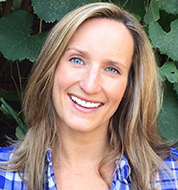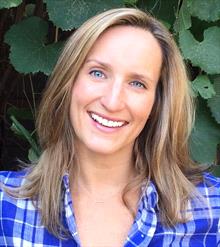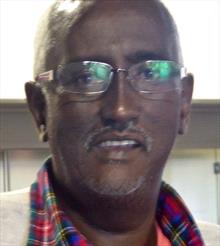Dr. Nur Fund: Mission accomplished


Photo by Danyel Dean
Jordan benShea is executive director of the VIN Foundation
The closest most of us get to understanding civil unrest is a news snippet we catch while starting our day, or an image we see on TV. We don’t touch it; we don’t feel it. Dr. Mohamed Ali Nur didn’t have this luxury of distance. Nur was working in Somalia as a veterinarian when he was singled out for attack by terrorists.
Nur miraculously survived, but he lost his leg and his country. When the VIN News Service shared the story of this colleague living in asylum in Switzerland, earning an insubstantial wage selling newspapers and getting around with an unwieldly 33-pound prosthesis, it caught the attention of members of the Veterinary Information Network, a professional community.
Back in 2005, a few members of the VIN community started the nonprofit VIN Foundation to support colleagues through their veterinary careers, in an effort to help the profession as a whole thrive. While it's not typical for the VIN Foundation to take on a project to benefit one individual, the volume of colleagues expressing a desire to assist Nur spoke powerfully. The VIN Foundation Board decided to consider a fundraising effort in which it would fully cover administrative costs, allowing for 100 percent of donations to go directly toward the goal of obtaining for Nur a more sophisticated prosthesis.
With Nur located in Basel, Switzerland, and the VIN Foundation based in Davis, California, the language barrier and nine-hour time difference presented a challenge. The VIN Foundation Board did not commit to the project until after extensive research, including consultation with prosthetics experts in the U.S. and Switzerland; and until assistance was assured by Nur's workplace friend Thomas Ebinger and by Basel orthotist Andreas Flum, among others.
In late 2015, the Dr. Nur Fund was set up to collect the money needed to acquire and fit an appropriate improved prosthetic leg. The fundraising goal was $25,000. In the first five days, we raised $1,875, and an anonymous donor offered a matching grant.
One colleague in particular took the program to heart. Dr. Ronnie Schenkein found Nur’s story hit close to home and made it a personal mission to help. She spent hours communicating with Nur by email, reaching out to his family on social media and shopping for warm clothing and other items to send in care packages. Last fall, Schenkein visited Nur and his family in Basel.
In addition, one of our VIN Foundation team members, Dr. Alejandro Garcia, donated framed prints of his professional wildlife photographs as gifts to contributors.
This fundraising effort truly came from the heart.

Photo by Dr. Ronnie Schenkein
Dr. Mohamed Ali Nur
Due to the generosity of many, we reached our goal in late 2016. Surprise, the organization that publishes the newspaper sold by Nur, also collected gifts from supporters in Switzerland.
Now Nur is adjusting to the new prosthesis, which features an electronic knee. A recent email we received from him opens with: “I would like to thank all whom supported fundraising for my prosthetic.”
We learned valuable lessons from the Dr. Nur Fund project. First and foremost, no distance or language barrier is too great if a group of caring individuals have the desire and will to support a colleague. Secondly, it is said that patience is a virtue. We found this to be so true! We tried our best to be virtuous as we waited for responses from doctors and language translations, and waded through the logistics of transmitting a large sum of money across borders.
Wrapping up this mission, I feel inspired thinking about the collaborative effort it represents. At the VIN Foundation, we like to say that “empowering one empowers all.” It is my hope that the pride and good feeling generated by helping this special colleague reinforces for all colleagues the satisfaction and joy that comes from giving assistance to fellow veterinarians in need and to the profession overall.
About the author: Jordan benShea is executive director of the VIN Foundation. She is a graduate of the University of California, Berkeley, where she studied mass communications with an emphasis in business administration and journalism. After college, she oversaw marketing departments in industries ranging from email marketing to biometrics and fitness-equipment manufacturing. Having grown up with an avid appreciation for giving back, Jordan found a way to tie her strategic-marketing experience with her passion for engagement in the nonprofit world. Jordan lives in Santa Barbara, California, with her dog and bee hives, enjoys a good book and loves exploring nature with friends and family.